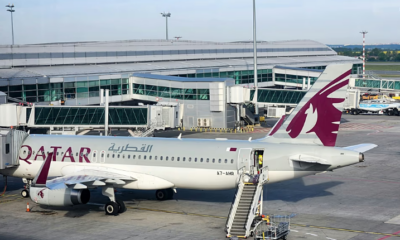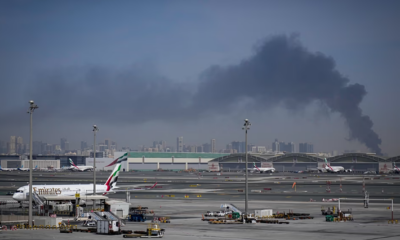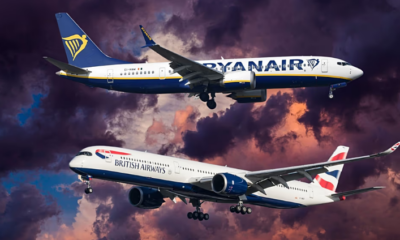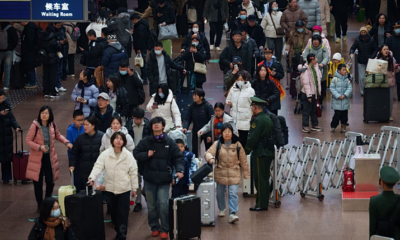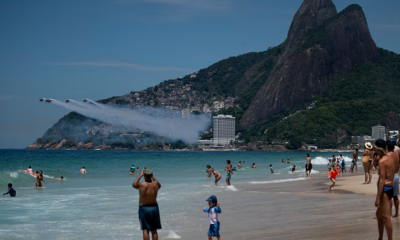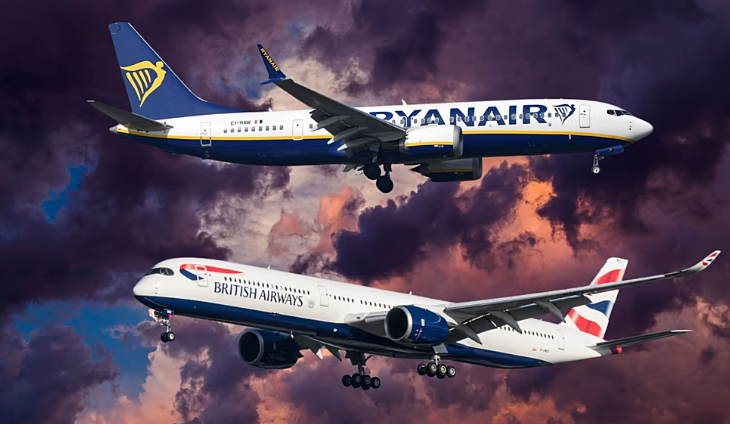Travel
Swiss Air Cancels Over 1,400 Flights Amid Europe-Wide Pilot Shortage
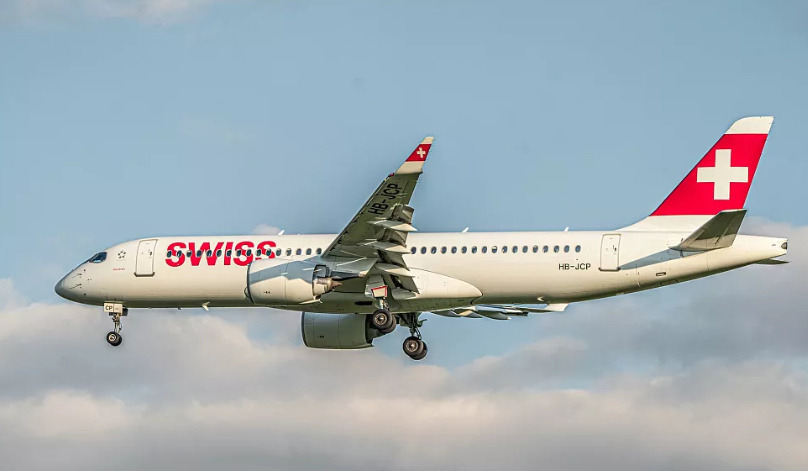
Travellers planning to fly through Switzerland this summer may face unexpected disruptions as Swiss International Air Lines, the country’s national carrier, confirmed it will cancel approximately 1,400 flights between now and October due to an ongoing shortage of pilots.
The airline announced that the schedule reductions will impact numerous short-haul routes departing from Zurich and Geneva, with several long-haul services—such as those to Chicago and Shanghai—also being scaled back. Seasonal routes, including summer flights to Hurghada in Egypt, have been suspended entirely.
In a statement, Swiss said it “deeply regrets” the cancellations and is implementing a series of short-term measures to mitigate the pilot shortfall. These include a voluntary retirement deferral programme, a vacation buyback scheme, and an appeal for part-time pilots to increase their hours. The airline is also collaborating with its pilot union, Aeropers, to improve roster flexibility and reduce fatigue-related last-minute absences.
Swiss estimates it needs around 70 additional full-time pilots to meet current demand. The airline has pledged to notify affected passengers as early as possible. Rebookings will be offered across Swiss, the wider Lufthansa Group, and Star Alliance partners—or on any available carrier if necessary. Full refunds are also being offered.
The announcement comes as several European airlines grapple with similar staffing constraints, raising concerns that this summer could see widespread flight disruptions across the continent.
KLM, the Dutch national carrier, recently revealed it is struggling to staff long-haul flights despite having a record number of pilots on its roster. In response, some Air France pilots are temporarily flying select KLM routes, including the busy Amsterdam–New York corridor, from July through October.
Meanwhile, British Airways and easyJet are actively recruiting and offering competitive packages to attract new pilots. British Airways has even pledged to cover pilot training costs—up to €100,000—for up to 60 candidates annually, as part of efforts to expand its ranks.
The pilot shortage has been exacerbated by the COVID-19 pandemic, which paused new training and prompted many pilots to retire early. The industry has yet to fully recover. According to consulting firm Oliver Wyman, the global aviation sector could face a shortfall of nearly 80,000 pilots by 2032. In Europe alone, the deficit may reach 19,000.
With summer travel demand rising, experts advise passengers to book early, prepare for potential schedule changes, and monitor airline communications closely to secure the best alternatives in case of cancellations or delays.
Travel
Qatar Extends Visas for Stranded Travellers as Airspace Closure Continues
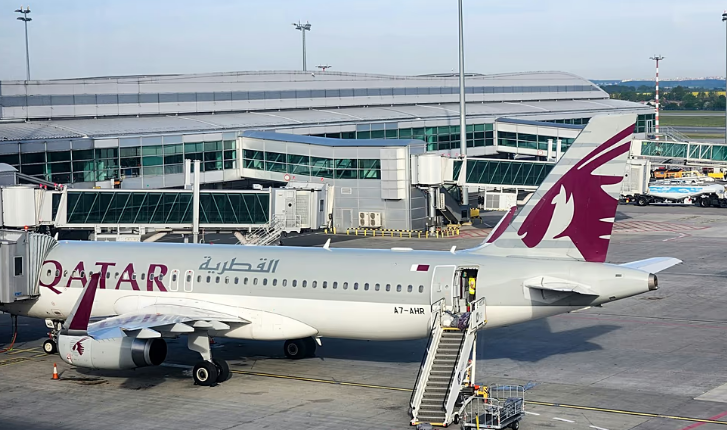
Ministry of Interior Qatar has announced that entry visas for travellers stranded in the country due to the ongoing airspace closure will be automatically extended for one month without additional fees.
The measure applies to all visa categories and will be processed electronically, with no action required from affected visitors. Authorities said further extensions could be introduced depending on how the situation develops.
However, travellers whose visas expired before 28 February, when Iran’s retaliatory strikes began and regional tensions escalated, will still be required to pay any overstay fines accumulated before that date.
Qatar allows citizens of 102 countries to obtain a free visa on arrival, with the permitted length of stay varying by nationality. Most European passport holders are eligible for stays of up to 90 days, while others receive a 30-day visa that can be extended for an additional 30 days.
The country’s airspace was closed shortly after noon local time on 28 February, according to the Qatar Civil Aviation Authority. Since then, there have been no commercial flights operating in or out of the country.
Qatar Airways has been issuing daily updates confirming the continued suspension of services, with announcements typically made before 9 a.m. local time. The airline said the next update is expected on 4 March.
Passengers holding bookings with Qatar Airways for travel between 28 February and 10 March 2026 can reschedule their trips within 14 days of their original departure date or request a full refund. The airline said changes can be made through its website or mobile app and urged only those travelling within the next 48 hours to contact customer service directly due to high call volumes.
While the United Arab Emirates has started operating limited exceptional flights to repatriate stranded passengers, Qatar has not yet resumed any inbound or outbound commercial operations.
The disruption has also affected travel in Southeast Asia. In Thailand, authorities said visit visas would be extended for tourists unable to leave due to flight cancellations to the Middle East. At Bangkok’s Suvarnabhumi Airport, 47 flights have been cancelled, along with 36 flights to and from Phuket.
Airlines impacted include Air Arabia, Emirates, Qatar Airways, Etihad Airways, Gulf Air and Kuwait Airways.
Thailand’s Ministry of Tourism and Sports said hotels have been asked to offer discounted rates to affected visitors as authorities work to ease the disruption.
Travel
Middle East Authorities Warn Against Sharing Footage of Iranian Strikes on Social Media
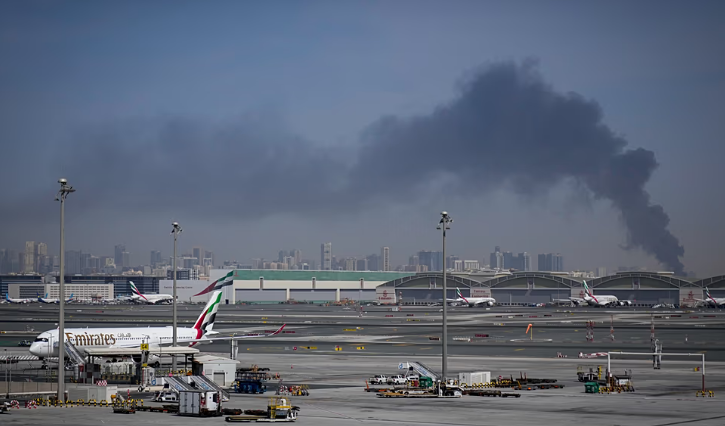
Authorities across the Middle East are cautioning residents, citizens, and visitors about sharing images and videos of Iranian retaliatory strikes, citing security risks and potential legal consequences.
Authorities have restrictions around sharing such images for security purposes and to prevent the spread of fake news. Social media has been flooded with footage from influencers and tourists showing missile interceptions and other military responses in the region. Officials warn that posting such content could reveal the locations of defensive installations or provide information that may aid future attacks.
The concerns are not unique to the region. Similar rules are in place in Ukraine, where the ongoing conflict with Russia has prompted authorities to limit the circulation of footage from conflict zones.
In Bahrain, two people were arrested on February 28 for posting live footage of strikes on social media. The Ministry of Interior said anyone filming, posting, or reposting videos from the scene could face legal action. “This constitutes a legal violation that could harm security and public order,” the ministry stated on X.
Kuwait’s Ministry of Interior issued comparable guidance, asking citizens to refrain from filming missile interceptions or authorities carrying out their duties. The ministry said such content could cause public anxiety, disrupt security operations, and spread inaccurate information. Legal measures will be taken against anyone sharing rumours or misleading news.
Qatar’s Ministry of Interior emphasized avoiding the circulation of images or videos of the aftermath to prevent legal liability. The Dubai Media Office issued similar advice, urging residents to rely on official sources for updates.
Authorities stress the importance of following verified channels for information. Bahrainis can access updates through @moi_bahrain and @bna_en, while UAE residents should refer to @DXBMediaOffice and @ADMediaOffice. Qataris are advised to follow @QNAEnglish and @MOI_QatarEn, and Kuwaitis can check @kuna_en and @Moi_kuw. Jordan and Saudi Arabia have also set up official accounts for timely updates, including @PetranewsEN, @moi_jor, @Spa_Eng, and @MOISaudiArabia.
Several embassies are providing updates to their citizens who register with them. International news outlets such as Euronews are also offering live coverage, with bureaus in Doha and Dubai running continuous updates on their website.
Officials emphasize that following these guidelines protects public safety and ensures accurate reporting during a period of heightened regional tension. Authorities warn that disregarding the rules could carry serious legal consequences, highlighting the need for vigilance and restraint when sharing information online.
Travel
Ryanair Ranks Last in Which? Airline Satisfaction Survey as Jet2 and Singapore Airlines Lead
-

 Entertainment2 years ago
Entertainment2 years agoMeta Acquires Tilda Swinton VR Doc ‘Impulse: Playing With Reality’
-

 Business2 years ago
Business2 years agoSaudi Arabia’s Model for Sustainable Aviation Practices
-

 Business2 years ago
Business2 years agoRecent Developments in Small Business Taxes
-

 Home Improvement1 year ago
Home Improvement1 year agoEffective Drain Cleaning: A Key to a Healthy Plumbing System
-

 Politics2 years ago
Politics2 years agoWho was Ebrahim Raisi and his status in Iranian Politics?
-

 Business2 years ago
Business2 years agoCarrectly: Revolutionizing Car Care in Chicago
-

 Sports2 years ago
Sports2 years agoKeely Hodgkinson Wins Britain’s First Athletics Gold at Paris Olympics in 800m
-

 Business2 years ago
Business2 years agoSaudi Arabia: Foreign Direct Investment Rises by 5.6% in Q1

